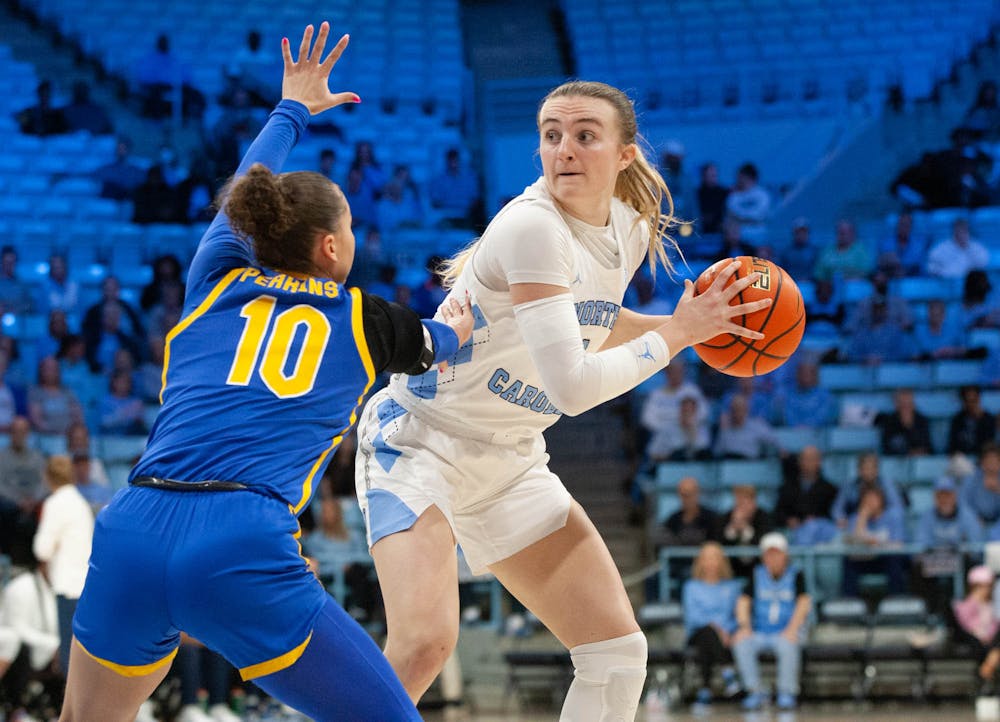Professor John Sweeney, director of the UNC Sports Communication Program, said regulatory framework in college athletics is important. He said unchecked chaos would lead to corruption and “tarnish the integrity of the game.” While athletic scholarships offer invaluable opportunities for many college athletes — particularly in non-revenue sports — Sweeney said the landscape becomes more complex when considering the highly lucrative nature of nationally-branded sports.
In the 2022-2023 fiscal year, the NCAA generated nearly $1.3 billion in revenue, per the Associated Press.
Richard Lapchick, the president of The Institute for Sport and Social Justice, said there is concern that there will be broad disparities in the amounts paid to top athletes in the most popular sports versus others, both on the same teams and less recognized sports.
“I think there should be national regulations that are systematic across the country,” Lapchick said. “That [compensation] is not different in Florida than it is in North Carolina. The fairness that you receive shouldn't be based on where you are geographically, it should be based on what you're doing for the university, whether it's in North Carolina, or Florida or California.”
Sweeney pushed back on this scrutinization of compensation disparities. He said this overlooks the balance maintained by schools, which allocate profits from commercial sports — typically football or men’s basketball — to support a diverse range of athletic programs. Still, he said there are plenty of details to consider.
“If we’re going to use something like the NCAA to regulate it, then what are the regulations?” he said. “Do Division IA schools have a budget that they can enhance student athletes with, but there’s a limit to it? Or is this just a free-form, above-the-table, professional pay-for-play deal? And how does that tie into the original sense of these sports being part of the campus and part of the student body?”
When Christopher Holliday, UNC football defensive back and fellow Student-Athlete Advisory Council member, arrived at UNC in the fall of 2020, college athletes were prohibited from earning compensation for their name, image and likeness.
That changed with NCAA v. Alston in 2021. Holliday feels like this Supreme Court case forced the NCAA’s hand in allowing NIL.
“It essentially said that you could get [compensation] from your name, image [and] likeness, but didn’t state what that exactly meant, and who could actually pay that out,” Holliday said. “It didn’t exactly put strong limitations on it outside of the institution. I think it's kind of become a free-for-all to an extent, and they're slowly trying to rein it back in, which has led to antitrust questions because [the NCAA] allowed college athletes to make this money.”
Holliday said that many college athletes may not fully grasp the significance of recent legislation surrounding NIL rights. As the NCAA adapts to maintain competitive balance across states, Holliday said NIL has opened doors for institutions to offer more incentives for recruits.
“I think honestly, NIL has led to an increased competitive balance,” Holliday said. “You’re seeing more teams be competitive that weren't previously competitive in a lot of sports just because they now have another attraction to get [athletes] to come to their university. Previously, there was maybe not as much of an emphasis if they didn't have strong academics or strong programs.”
Holliday said more athletes at UNC now understand the importance of capitalizing on these opportunities to leverage their abilities, just as professionals in other fields do. He cited examples such as former field hockey player and current head coach Erin Matson previously not being allowed to individually host summer camps when NIL was not legalized.
To get the day's news and headlines in your inbox each morning, sign up for our email newsletters.
“Musicians can teach younger children how to play music and get paid for that,” Holliday said. “So why should we not look to monetize our skills and assets?”
Ehrlich said the unionization of the Dartmouth men’s basketball team stands as a pivotal moment as a collective approach involving multiple players petitioning for representation. Unlike other cases of individual advocacy, he said this effort embodies a unified front seeking to establish employment for athletes.
“If you have a very broad bargaining group with a very broad negotiating range that involves all college athletes, or involves multiple sports, you're gonna see a lot of dilution of interest,” Ehrlich said. “You're gonna see a lot of difficulty negotiating an agreement, and one that actually may take away rights instead of adding more rights.”
Ehrlich said athletes may need to rethink their traditional approach to advocacy. He predicts athletes will soon begin to focus on taking legal action, as it may yield greater benefits than pursuing collective bargaining or unionization.
Ustby said raising concerns about direct pay to coaches can be difficult, as it’s a “sensitive topic.” She pointed out the need for intermediaries — akin to agents at the professional level — to negotiate on athletes’ behalf.
"I think that would move the needle for compensation in college sports because it’s just tough for the athletes to have to be their own advocate all the time," Ustby said.
Lapchick said he believes further unionization of college athletes is unlikely in the next 10 years, but predicts a widening gap between high-profile athletic programs and others in terms of NIL compensation.
Still, no matter what form the advocacy may take, it is clear that athletes at UNC and across the country are looking to redefine their stake in the game.
“I hope we don’t get complacent with where we're at,” Ustby said. “There’s so much more opportunity for growth and compensation. And I think athletes deserve it.”
@dthsports | sports@dailytarheel.com



